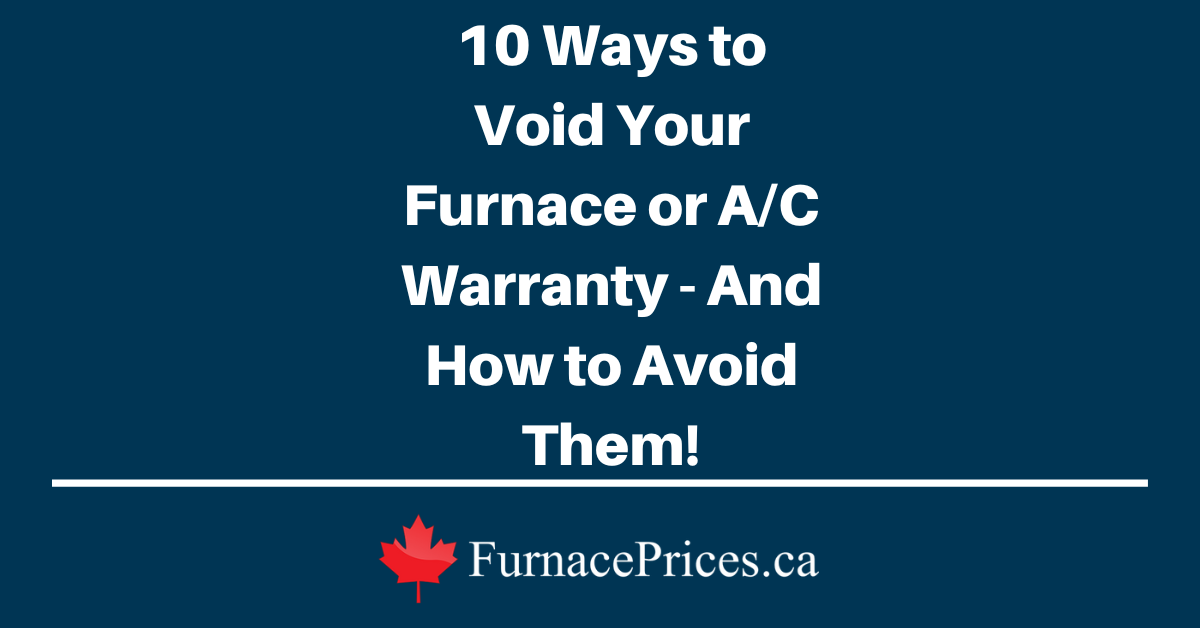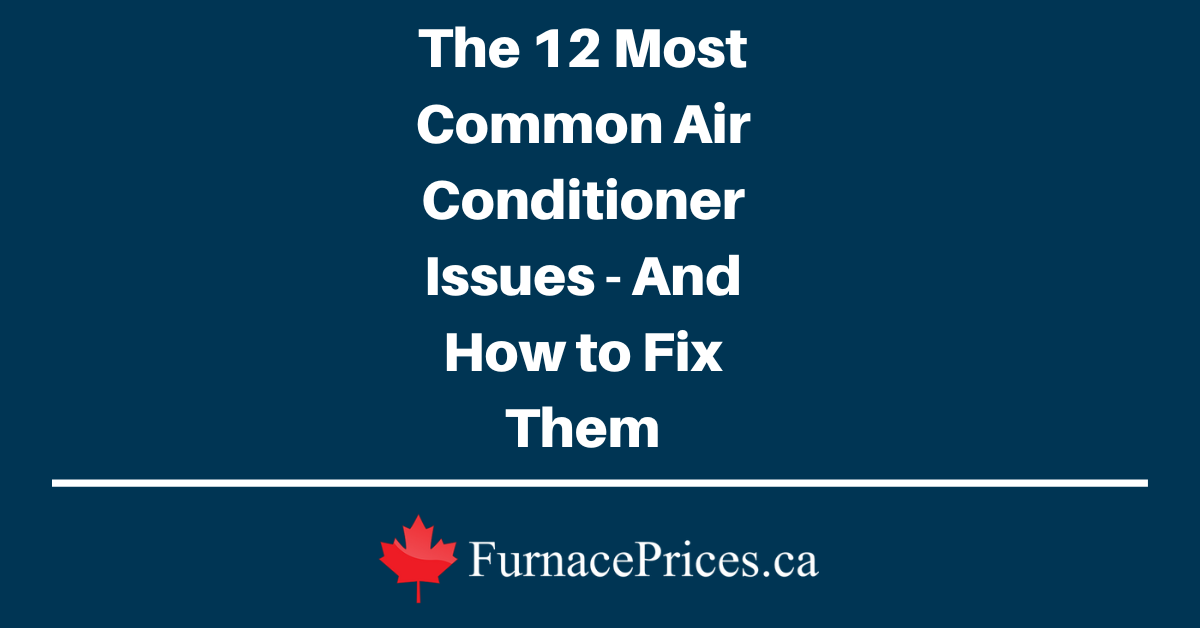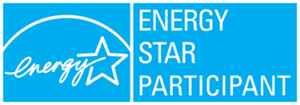Our Complete Duct Cleaning Buyer Guide: Learn everything you need to know about duct cleaning, from the typical costs to pros & cons, to what you can expect when you hire a duct cleaning services.
Many homes in Canada are heated and cooled with forced-air systems. If your home is heated with a furnace or cooled with a central air conditioner, then you likely have an extensive duct system running throughout your house, even if you don’t see most of it. Because the air in your home contains things like dust and allergens, the ducts can get dirty and blow these contaminants around your house.
This has many homeowners wondering about duct cleaning so here, in this guide, you’ll find everything you need to know about the process, including what it is, who needs it and when, how to find reliable duct cleaning specialists, expected costs, and more.
What Is Duct Cleaning, and How Does It Work?
Forced-air heating and cooling systems use ducts to move air around your house. The ducts are responsible for delivering heated or cooled air to the supply vents (this controls the indoor temperature), returning air from the rest of the house back to your furnace or air conditioner and venting air to the outside. Over time, ducts can become dirty because of a number of contaminants, including:
- Mould
- Dust
- Pollutants
- Pollen, allergens
- Obstructions (such as toys)
- Vermin and their feces
- Pet Dander
Duct cleaning, therefore, is the process of removing these unwanted particles and objects from your duct system to improve your indoor air quality and HVAC efficiency.
Watch Video: Duct Cleaning – A Buyer’s Guide for Homeowners
A short overview of duct cleaning services and what you should know
(2 mins 26 seconds)
Ventilation & Duct System Components
Ducts: These are the large metal ‘pipes’ or tubing that form the main passages through which air is moved around your house. They’re connected to the furnace, the air conditioner, the supply and the return vents, the flue, and the plenum. The ducts also include duct transitions, which connect the various pipes and allow them to go in different directions.
Air handler: The air handler is the part of your HVAC system that controls and circulates the heated or cooled air that’s used to regulate the temperature in your house. After the air is heated by your furnace or cooled by your air conditioner, it’s passed to the air handler, which contains a filter and a fan that cleans the air and then blows it into the ducts.
Registers and grilles: Registers and grilles are both types of vent covers that go over the openings in a floor or wall that are attached to the duct system. The difference between them is that registers have dampers that can control airflow, whereas grilles are always open and can’t be used to slow or stop airflow.
Flue: The purpose of the flue is to vent air to the exterior. These are required for heating or cooling systems that create dangerous gasses, such as with a gas furnace.
Plenums: Plenums are the part usually right above the furnace that helps circulate the air into the ductwork itself. HVAC systems may have one plenum for supply air and one plenum for return air.
Duct Cleaning Benefits
Duct cleaning has many potential pros. For one thing, it can improve the air quality in your home and increase the efficiency of your heating and cooling system.
Beyond that, there may also be other related benefits, including:
- Better indoor air quality
- Reduced symptoms from allergies, asthma, and other breathing problems
- Removing potentially hazardous contaminants (like mould) from your ductwork
- More efficient ventilation and HVAC systems
- Eliminating odours from the home
- Lower energy bills
- Reduced maintenance for your furnace and air conditioner
- Increased longevity for your heating and cooling systems
Keep in mind that the relative effect of duct cleaning on these benefits might be fairly moderate. In other words, don’t expect a dramatic reduction in your energy bills or that your furnace will last twice as long.
Air Quality
Duct cleaning reduces the number of contaminants in your indoor air, including dust, allergens, and mould. This can be especially important if somebody in your family suffers from allergies or asthma, and cleaning your ducts may help to reduce symptoms.
Removing these contaminants may also help to eliminate persistent odours in your house, especially ones caused by pollutants, smoke, dander, mould, and other odour-causing substances.
Get Quotes
How soon are you looking to buy?*



HVAC System Efficiency
Obstructions and debris in your ductwork can impede your ventilation system and reduce airflow, and this will cause your furnace and air conditioner to work harder. Similarly, dirty components like air handlers and coils can also make your heating and cooling system less efficient.
By getting your ducts cleaned, you can increase the efficiency of your HVAC system, improve ventilation, reduce your energy costs, increase the lifespan of your furnace and air conditioner, and reduce maintenance costs for your heating and cooling systems.
Duct Cleaning Limitations
Unfortunately, it’s not unheard of for some duct cleaning services to overemphasize the importance and benefits of duct cleaning. For that reason, you should understand the limitations of the service so you can decide if you really need it, and have realistic expectations about the benefits.
Duct Cleaning Doesn’t Eliminate Dust
For one thing, duct cleaning will not magically eliminate dust from your house. Cleaning will temporarily remove dust from the ductwork, but it won’t permanently remove it from the air. This is because dust is all over the place, including inside and outside, and we’re constantly creating most of it. So while duct cleaning will reduce the amount of dust in your house for a while, the dust will always come back.
Duct Cleaning Doesn’t Address Root Causes
Another limitation of duct cleaning is that dirty ducts are sometimes a symptom of a larger problem, and cleaning the ducts won’t address the root cause. For instance, if your ducts are dirty because of rodents or insects, the duct cleaning service will only clean the current mess. However it won’t address the infestation, and you’ll still have to have that dealt with by a pest control company.
Similarly, if you have mould in your ducts, cleaning will only remove the existing mould, but won’t address any potential moisture issues that allowed it to grow in the first place.
Do I Need to Have My Ducts Cleaned?
Duct cleaning isn’t something most people have on their regular to-do lists, and that’s fine. In fact, there are generally only certain instances in which duct cleaning is really ‘essential’, so here are some examples of when you should consider duct cleaning and when you may not need to:
Duct Cleaning Is Recommended If:
- Dust accumulates frequently and excessively around your home
- There’s a rodent, insect, or other infestation in your ducts
- There’s excessive dust, debris, or other obstructions inside the ductwork
- You’re noticing reduced airflow and ventilation throughout the house or in several rooms
- You recently did extensive renovations
- There’s mould growing in the ducts or any related components
Also note that if you don’t have an additional air filtration system (i.e. you’re just using the basic flat air filters) and/or don’t often replace your filters, duct cleaning may provide some additional benefit in your case.
Furthermore, certain factors can increase dust accumulation in your home and make occasional duct cleaning more worthwhile, like having an unfinished basement for instance.
READ: Is Your Furnace Making Your Home Dusty? Causes of Dust & What to Do About It
Duct Cleaning May Not Be Necessary If:
- There’s some dust in the home or ductwork, but it’s not excessive (some dust is normal and unavoidable)
- There aren’t any vermin or insects infesting the ducts
- Air is flowing easily through the system
- You haven’t done any recent renovations
- You have a good quality air filtration system attached to your central heating & cooling system
That being said, having your ducts cleaned every so often, say once every couple of years, may be beneficial and isn’t likely to do much harm anyway.
A good time to have your ductwork cleaned is before the fall/winter heating season. During the summer and early fall, we’re more likely to have our windows open thus letting in all kinds of pollen, dust, and other pollutants, so having your ducts cleaned at the same time as a tune-up and inspection of your heating system may make sense.
Typical Cost of Duct Cleaning
The price of duct cleaning services will depend on many factors, but the average price is around $375. However, the cost can range anywhere from $250 to $500 or more, depending on the company you choose and where you live.
Other factors that will also impact the cost include the size of your home, the extensiveness of your ductwork, the number of vents in your house, how easy it is to access the system, and even how dirty your ducts are.
As with other home services, rates can vary a bit by region. Larger cities, like the Greater Toronto Area, may have more competition and thus slightly lower prices, though larger nicer homes in affluent neighbourhoods may pay a bit more.
You should be wary of automatically choosing the lowest price you can find. Be sure to hire a quality, reputable company!
How Duct Cleaning Is Done and What to Expect from Duct Cleaning Services
Not all duct cleaning companies are created equal, and while some will go the extra mile to make sure your ducts are correctly cleaned, others may not be as thorough or may try to cut corners to save time and money.
Because of that, it’s important to know how duct cleaning is done and understand what a good duct cleaning company will do as part of their regular service. With that in mind, here’s a basic breakdown of what a duct cleaning company will do:
- Cover your furniture and carpets to protect them from dust and other airborne particles
- Inspect the entire system before cleaning using the access doors
- Check the system for asbestos
- Brush surfaces to scrub off dirt and other contaminants
- Thoroughly clean all system components, including the ducts, grilles or registers, coils, air handler, drain pans, motor, and fan
- Use the right tools and equipment, and take steps to avoid damaging your ductwork
- Inspect the system after cleaning using the access holes or a camera
- Replace insulation that was removed for cleaning and reseal the access holes
To perform the actual cleaning, the cleaner will use a special vacuum to remove dust and particulates from the ducts and other components.
Depending on your needs, and the company, they may also use additional equipment, like cameras, compressed air, roto-brushes, and UV lights to kill bacteria and mould.
Get Quotes
How soon are you looking to buy?*



Choosing the Right Duct Cleaning Company
Some duct cleaning companies are more effective and more thorough than others, so it’s important to know what to look for in a trustworthy and reliable company.
First of all, it’s crucial to look past costs when deciding on a duct cleaning service, and there are a few reasons for this. For one thing, a discount duct cleaning company might not be as thorough as they should. Some companies will quote a whole-house price at a low rate only to add on extra charges afterward that greatly inflate the final cost.
When choosing a duct cleaning service, here are some important things to keep in mind:
- Look for a company that’s been around for at least a few years, and that has a good reputation in the area
- Make sure they have liability insurance in case anything goes wrong. Otherwise, they may not cover damages
- Don’t be afraid to ask for references from past clients
- Request quotes from multiple companies, including any additional charges or fees
- Ask what measures they’ll take to protect your home from dust and damage
- Ask if they adhere to the National Air Duct Cleaners Association’s (NADCA) duct cleaning standards
Commercial Duct Cleaning
If you own or operate a commercial building, duct cleaning may be a good investment every few years, especially if any of your tenants operate machinery or other activities that are likely to generate excess dust and debris.
Commercial properties obviously have different needs, and high-traffic buildings, or businesses like restaurants, large offices, and so on, may benefit from more regular ventilation inspection and cleaning.
How to Keep Your Ducts Clean
They say prevention is the best medicine, and there are steps you can take to keep your ducts clean so you don’t have to pay for regular servicing, can keep your air quality high, and ensure the efficiency of your HVAC system.
For starters, you should change the filter in your furnace and air conditioner every one to three months during the heating and cooling seasons, and always use the highest efficiency filter available. To make sure the filter fits properly and does its job, always use the filter recommended by the manufacturer.
Other steps you can take include:
- When you do have your ducts cleaned, make sure the company you choose will clean everything, including the coils, drain pans, air handler, and other components
- Dust and vacuum your home frequently using a vacuum equipped with a HEPA filter or filter bag
- Always seal off supply and return vents whenever you take on any home construction or renovation projects
Duct Cleaning Frequently Asked Questions
Q: How often is duct cleaning necessary?
A: NADCA recommends duct cleaning every three to five years, but you might want to make sure it’s necessary before you spend the money. For instance, if you’re noticing reduced airflow, excessive dust, or have rodents in your ducts, then you should have your ducts cleaned. Otherwise, it may not be necessary to clean your ducts regularly, especially if you take steps to keep them clean and your home as dust-free as possible.
Q: Will duct cleaning help with dust and mould?
A: Duct cleaning will not remove dust from your house, but it will reduce the amount of dust in your ductwork. Cleaning will remove mould from your ductwork, but it won’t address the root cause, which could include a leak or moisture problem.
Q: Is duct cleaning worth it?
A: Duct cleaning has many potential benefits, but that doesn’t mean it’s always worth the money. If you meet any of the criteria above that make duct cleaning necessary, then absolutely you should make the investment. But if your ducts don’t require cleaning, then you’re likely better off saving the money because the benefits won’t outweigh the costs.
Q: How long does duct cleaning take?
A: A thorough duct cleaning should generally take between 90 minutes and three hours, but this will depend on the size of your house, the extensiveness of your ductwork, the number of vents, and more.
Q: Can air duct cleaning cause damage?
A: In general, duct cleaning should not cause any damage to your home, vents, or HVAC system. Of course, if the company is careless, it’s possible for minor damage to occur to walls or furniture as the equipment is being carried into your home. But hiring a reputable company should ensure that proper care is taken.
Q: Can you duct cleaning yourself?
A: Generally, homeowners should leave this to a professional, in particular because it requires powerful suction vacuums and related equipment, which may not be easy to rent.
Get Quotes
How soon are you looking to buy?*











